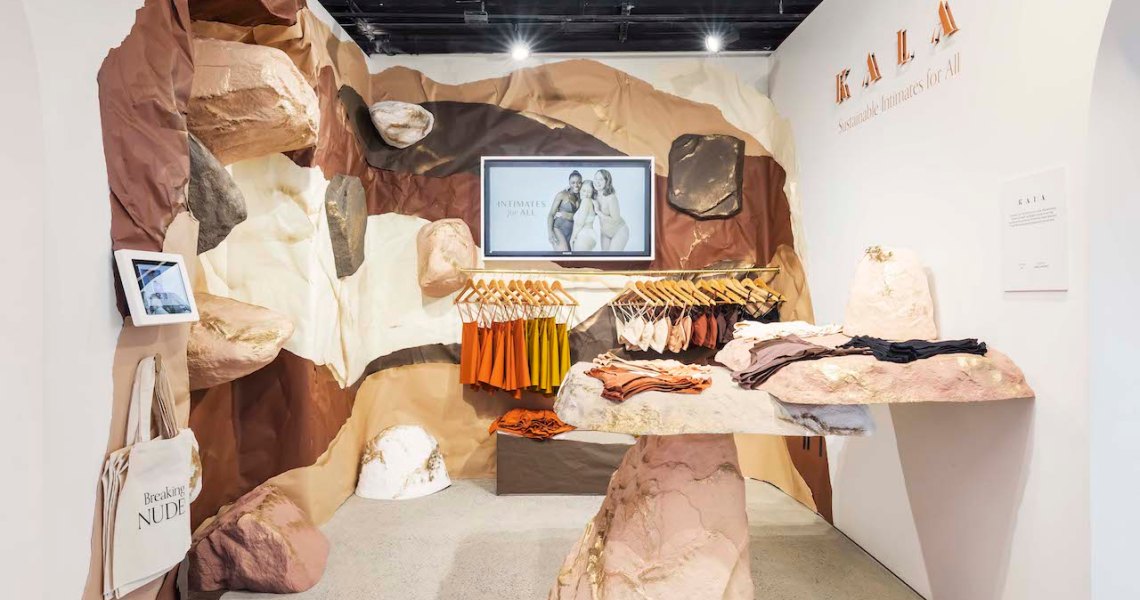For retail service company Neighborhood Goods, closing its three stores wasn’t the end of the world. Co-founder Matt Alexander said the company had raised enough money — $11 million in 2019 — to get by for the near future and isn’t in any danger of shutting down. Where the threat lies is in Neighborhood Goods’ reliance on the success of its many brand partners. It rents retail space to them, taking a percentage of their in-store sales.
To help its existing and potential partners in the long-term, Neighborhood Goods is planning a new project called The Commons, a rent-free and rotating space within each of its three stores for brands, artisans, artists, musicians and chefs to set up shop. Brands have to apply for the limited free space, which will be given out with a preference for smaller local brands that have been hit particularly hard by coronavirus. The Commons will open when Neighborhood Goods’ stores reopen.
“We have a lot of brands applying to Commons, but some of them are in a dire position and need something to drive sales right now,” Alexander said. He noted that most of the brands the company works with are small, and some don’t have owned e-commerce site. There are a few, larger brand exceptions, like Fossil. For now, Neighborhood Goods is setting up its partner brands on its own e-commerce platform and giving them marketing opportunities, like letting them host classes through its Instagram account, where it has 16,000 followers.
Neighborhood Goods is taking a percentage of sales through e-commerce, but it has lowered that percentage to 5-10%. For in-store sales, the company takes a 20-50% cut of each transaction, with the higher range reserved for larger wholesale brands like Fossil.
Neighborhood Goods had an e-commerce site prior to coronavirus, but Alexander said it was a negligible part of the business. But within days of the company’s store closings, dozens of brands that had formerly sold in-store only had signed up to sell with the company online. Neighborhood Goods’ pitch to brands was its newly launched free shipping, plus its reduced cut of sales for each transaction. E-commerce has been growing swiftly since the company closed its stores, with the first 10 days of April seeing e-commerce sales 3,000% higher than in March, owed to promotions of free shipping and included products featured on the company’s Instagram Stories.
A like-modeled retailer also being forced to make changes is Showfields.
“The biggest impact on our business was on our physical stores,” said co-founder Tal Zvi Nathanel. “We had planned to launch our new curation featuring 40 brands and 20 new artists at our store on Mar. 27 , a process that is carefully organized over many months and involves hundreds of people, but that’s on hold. Not being able to launch this curation after all of the time and effort that so many people committed was incredibly difficult.”
Ad position: web_incontent_pos1
Instead, Showfields shifted focus to e-commerce, launching its first online platform the same week that stores closed and bringing most of its 100 or so brands online within a few days.
Every day at noon, Showfields will debut on the e-commerce site a new curation of around 10 products from a different brand, along with a livestream on both Instagram and the Showfields’ website where brand founders and Showfields’ curators will showcase different products.
Each week, the company has also been hosting digital Zoom roundtables with its brand founders and guest speakers from public relations companies and venture capital firms, for example, to give advice on how to get through this crisis. Outside of the digital realm, Showfields is also turning its store into a makeshift distribution center for medical supply company Cabinet, so customers can order hand sanitizer, acetaminophen and other essentials.
Neither Neighborhood Goods nor Showfields is charging rent for its tenants while stores are closed.




